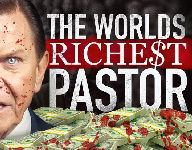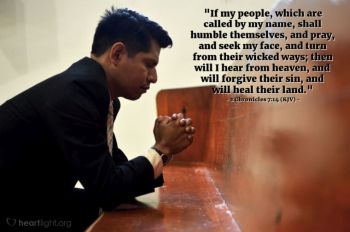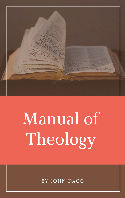The Heavenly Footman
 Heavenly Footman. Or a Description of the Man that gets to heaven: with directions how to run so as to obtain.
Heavenly Footman. Or a Description of the Man that gets to heaven: with directions how to run so as to obtain.
By John Bunyan
“So run, that ye may obtain.”—1 Cor. 9:24.
This work is another fictional type work by Bunyan, the Heavenly Footman which is a runner trying to “win” as if winning was getting to heaven.
Read online at http://truthinheart.com/EarlyOberlinCD/CD/Bunyan/text/Heavenly.Footman/Entire.Book.html
From the book
The title of Heavenly Footman was probably suggested by the words of the prophet Jeremiah, If thou hast run with the footmen, and they have wearied thee, then how canst thou contend with horses? And in the land of peace thou trustedst, then how wilt thou do in the swelling of Jordan? (12:5), and Let us run with patience the race that is set before us (Heb 12:1). The word footman does not refer to that class of servants who are badged and dressed in livery to gratify the pride of their masters, nor to that description of foot-soldiers or infantry, whose business is designated by the blood-stained colour of their clothes. But it refers to those who are travelling on foot to a distant country, engaged on a pilgrimage from earth to heaven. It is worthy of remark, that the whole of the children of God, of every age and clime, class and kindred, the richest and the poorest, all are upon terms of perfect equality in running the race set before them. No wealth, nor grade, can procure a horse to carry them, or a carriage to ride in; all must run on foot. The only carriage for the foot-sore, weary pilgrim is the bosom of Christ; he carries the lambs in his bosom, and there is room enough for all; the poorest labourer and the noblest aristocrat meet there upon a level with each other; there is no first class for the rich, and parliamentary train for the poor. It is all first class. In the varied adventures of Christian and his associates, and of Christiana, her children, and her lovely friend Mercy, they never ride. The little one is led by the hand up the steep and rough hill Difficulty, but his own feet carry him throughout the wearisome road. The only carriage was the fiery chariot which carried the soul of the martyred Faithful to the Celestial City; there is no riding to heaven while in the body. Wealth may procure many pleasures to clog the soul in it’s journey. It may purchase indulgencies; it may incline some disciples to look at sinful imperfections through the wrong end of the telescope; it may purchase prayers, but devotional exercises, bought by gold, will freeze the soul. It is the poor disciple that receives the faithful admonitions of his equally poor fellow-saints. The rich have more ceremony, while the labourer enjoys more richly, more free from restraint, the warm outpourings of a devotional spirit. Still there is nothing to prevent the greatest nobleman or monarch from running to heaven in company with the disciples of our lowly Master. If he refuses this road and this company, he must pursue his downward course to destruction.
Bunyan-John-Heavenly-Footman.pdf (53 downloads ) .
Bunyan-John-Heavenly-Footman.prc (44 downloads )
Convert the docx to Logos Personal Book
Bunyan-John-Heavenly-Footmsn.docx (60 downloads ).


 Ministerial Requirement Not Covetous
Ministerial Requirement Not Covetous


